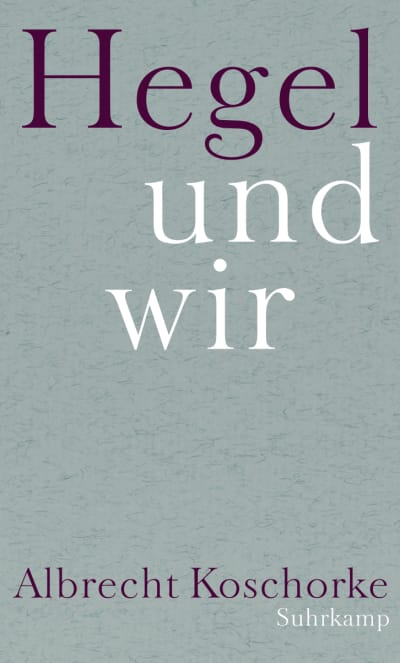With regards to Prussia – after 1806 a financially ruined, territorially,...
Which factors condition a cultural grand narrative and let it become efficacious? Especially Hegel’s sublime accomplishment of a narrative synthesis that he achieves with his philosophy of history still provokes this question. And so it is the grand epicist Hegel, who dons the garb of philosophical classification, that Albrecht Koschorke focuses on in his Adorno Lectures in Frankfurt.
With regards to Prussia – after 1806 a financially ruined, territorially, politically and culturally fragmented agrarian state, and around which Hegel’s system revolves later – his philosophical narrative has a more counterfactual than describing character. In any case, producing creative constructs that then gain independence as political entities is a general characteristic of the era of national mythologies – whereas symbolic integration by narration is far less successful under contemporary post-national portents.
With that in mind, Koschorke is concerned not least with the narrative conditions of the European present. He shows why an all-encompassing, inwardly heavily integrating narrative of Europe, which politicians demand especially in times of a Euro crisis, doesn’t – and shouldn’t – exist.
Persons
Albrecht Koschorke
Albrecht Koschorke, born in 1958, is a professor of Modern German Literature and General Literary Studies at the University of Constance. Since 2006, he has been part of the cluster of excellence on »Cultural Foundations of Social Integration« in Constance and became the speaker of the post-graduate programme on »The Real in the Culture of Modernity« in 2010. In 2002, he was awarded the Prize of the Academy of Sciences in Berlin-Brandenburg and in 2003 the Leibniz Prize of the German Research Foundation.
Albrecht Koschorke, born in 1958, is a professor of Modern German Literature and General Literary Studies at the University of Constance. Since...
OTHER PUBLICATIONS

